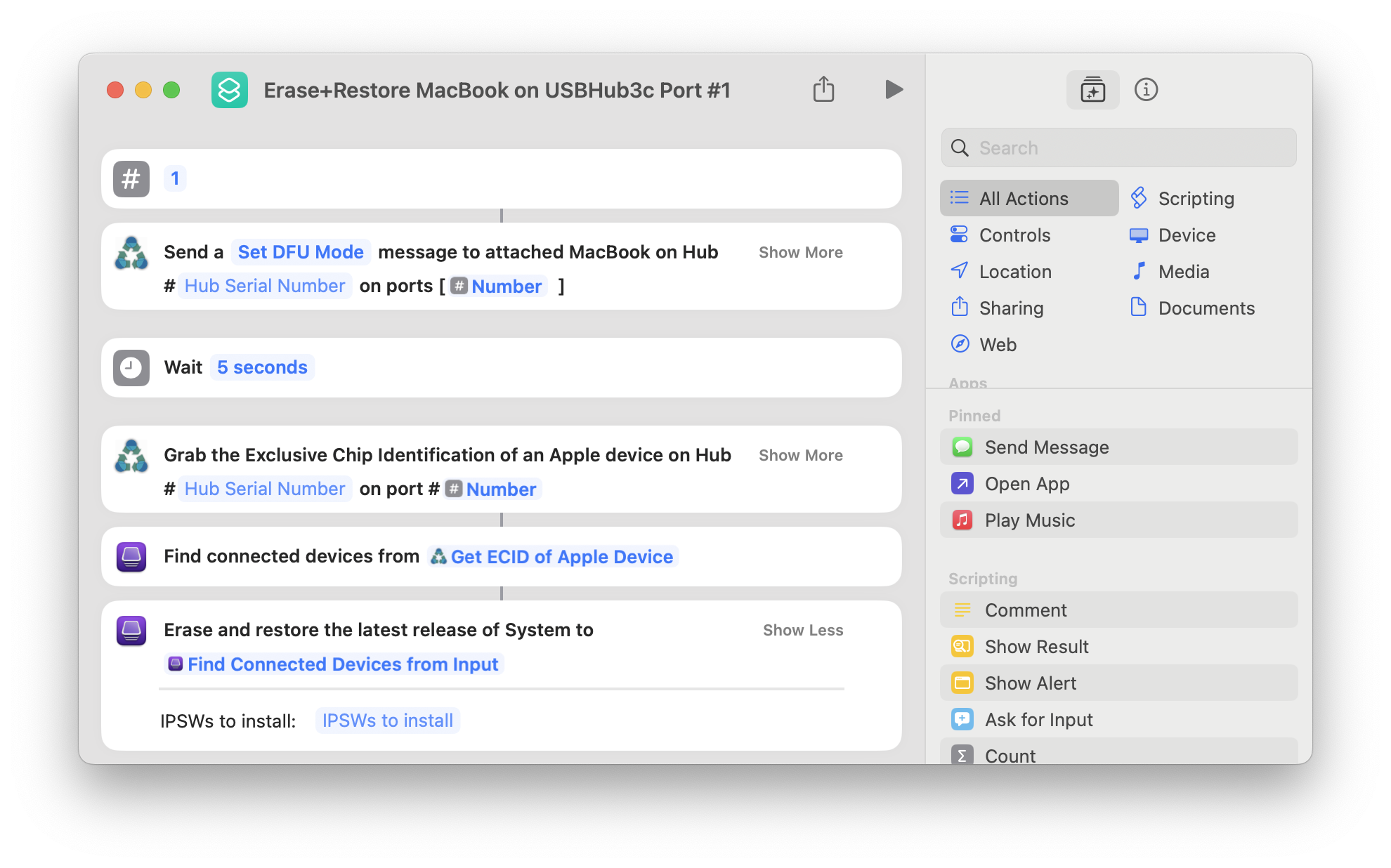Shortcut Example¶
Shortcut Workflow Step-by-Step¶
To understand each step of the shortcut, Control-click an action and select Show Info.
Key Actions¶

Sets the USBHub3c port number for the MacBook to be updated (set to 1 by default)

Sends a Set DFU Mode message on hub # Hub Serial Number on ports [# Number]
Tells DFU Automator to have USBHub3c send a Vendor-Defined-Message to put a MacBook on port [# Number] into DFU mode
If only one hub connected, Hub Serial Number can be blank

Waits 5 seconds to give the MacBook time to enter DFU Mode

Tells DFU Automator to read the ECID of the attached MacBook on the specified port

Tells Apple Configurator to convert the ECID to a Connected Device Entity for use in other Apple Configurator shortcut actions

Erases and restores the connected devices
Warning
All data and settings will be removed!
IPSWs to install: Select additional IPSW files to install on connected devices. Configurator will choose the correct IPSW for the device being updated
Example Usage¶
To use the example shortcut to DFU-restore a MacBook:
Locate the DFU-enabled USB-C port on the target Mac:
Apple Silicon MacBooks: Left side, towards the hinge
Intel MacBooks with T2 chip: Left side, away from the hinge
Desktops: Refer to Apple Support for more details
Connect the host Mac to USBHub3c Port 0
Connect the target MacBook’s DFU-enabled port to USBHub3c Port 1
Warning
Target MacBook will be erased!
In Shortcuts , click the play button in the upper right of the shortcut icon or the expanded view of the shortcut

Click “Allow” to let the shortcut run actions
The target MacBook will chime and boot into DFU mode with a black screen
Approve any other privacy popups that appear:
Allow configurator to find devices
Allow the shortcut share the device ECID with Apple Configurator
Apple Configurator will erase and restore the MacBook on port 1
Restoring Multiple Devices Simultaneously¶
Shortcuts and Configurator actions can be run in parallel, allowing multiple MacBooks to be restored asynchronously. The restore shortcut can be copied and the port number can be set for each port. To use, connect a MacBook to an available USBHub3c port and manually trigger the corresponding restore shortcut matching the port number.
More information about using Apple Configurator with Shortcuts can be found here.
